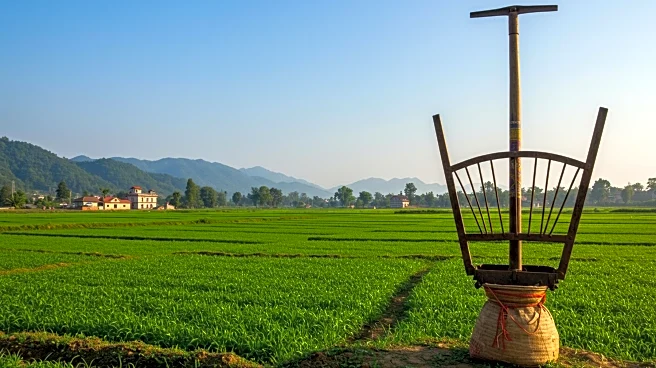What's Happening?
Nepal has seen a significant increase in agricultural imports, totaling Rs. 400 billion in the last fiscal year, which is 54% higher than the previous year. This reliance on imports is attributed to factors such as shrinking agricultural land, youth migration, traditional farming methods, and inadequate irrigation facilities. The government has declared an agricultural decade starting from 2024, but challenges remain, including the lack of chemical fertilizers and infrastructure for storage and transportation. Extreme weather events due to climate change further threaten the agricultural sector, with regions like Madhes experiencing prolonged droughts.
Why It's Important?
The heavy reliance on agricultural imports poses a risk to Nepal's food security and economic stability, as it depletes foreign reserves. Modernizing agriculture with climate-smart practices and promoting native crops could enhance resilience and self-reliance. The government needs to prioritize investment in modern agricultural techniques and infrastructure to support farmers and boost domestic production. This shift is crucial for ensuring food security and stimulating economic growth, reducing dependency on imports, and conserving foreign reserves.
What's Next?
The government is expected to focus on modernizing agriculture by adopting high-yielding crop varieties, advanced irrigation techniques, and large-scale farming using modern tools. Policies to support farmers, timely provision of fertilizers, and investment in infrastructure are anticipated to be key areas of focus. These efforts aim to make Nepal self-reliant in agricultural goods, ensuring food security and economic growth.










